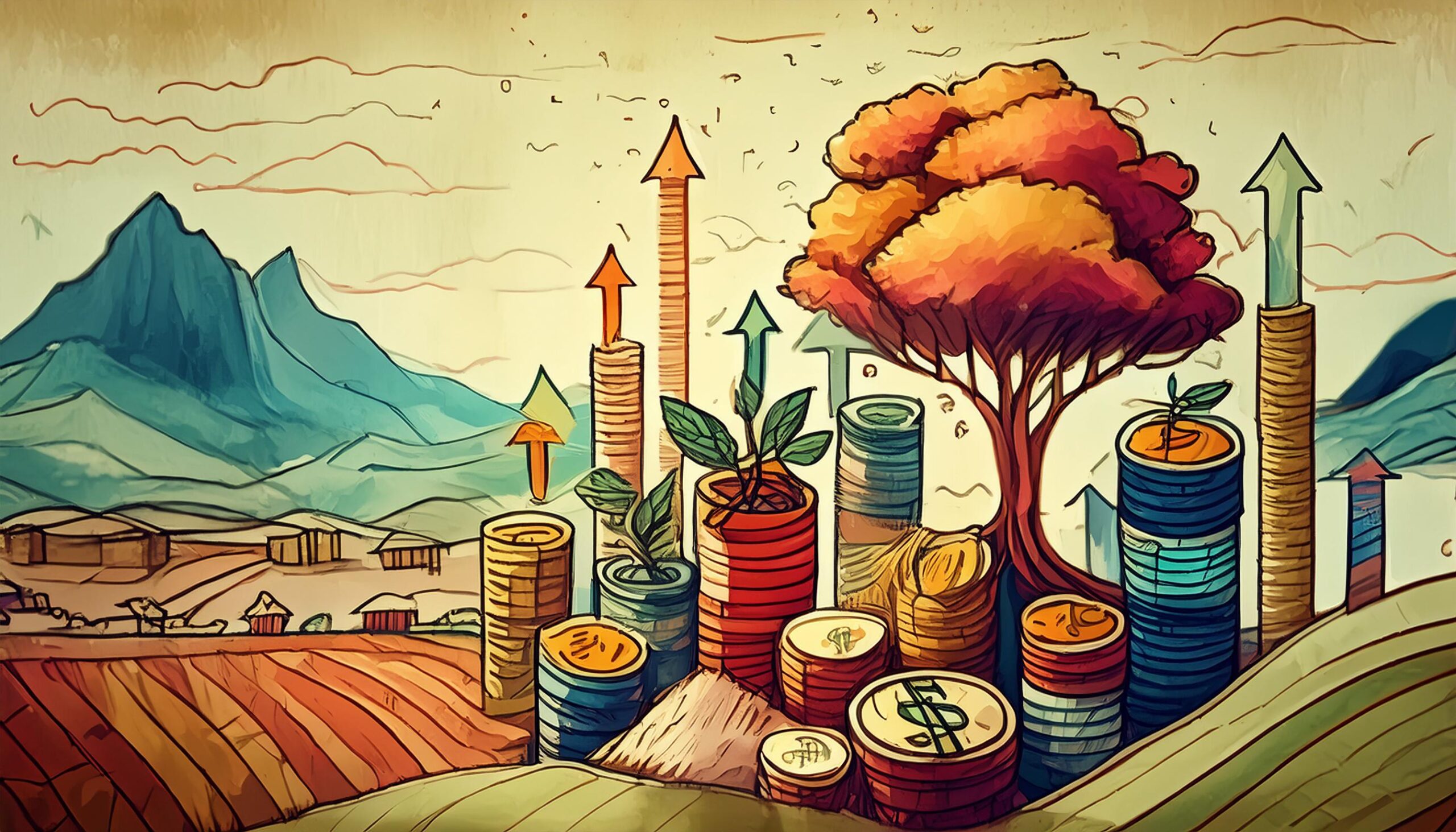Inflation is a critical economic concept that significantly impacts personal finance. It refers to the general increase in prices and the consequent decrease in the purchasing power of money. Understanding how inflation works and its effects on your financial well-being is essential for making informed decisions to protect and grow your wealth. This blog post delves into the role of inflation in personal finance and offers strategies to safeguard your purchasing power.
Understanding Inflation
What is Inflation?
Inflation is the rate at which the general level of prices for goods and services rises, leading to a decrease in the purchasing power of money. In other words, as prices increase, each unit of currency buys fewer goods and services. Inflation is typically measured by the Consumer Price Index (CPI), which tracks the prices of a basket of commonly purchased items.
Causes of Inflation
Inflation can be driven by several factors, including:
- Demand-Pull Inflation: Occurs when demand for goods and services exceeds supply, leading to higher prices.
- Cost-Push Inflation: Results from an increase in the cost of production, such as higher wages or raw material prices, which businesses pass on to consumers.
- Built-In Inflation: Stems from adaptive expectations, where businesses and workers expect prices to continue rising, leading to a self-perpetuating cycle of price increases and wage demands.
The Impact of Inflation on Personal Finance
Erosion of Purchasing Power
The most direct impact of inflation is the erosion of purchasing power. As prices rise, the value of money decreases, meaning you need more money to buy the same goods and services. This can significantly affect your standard of living, especially if your income does not keep pace with inflation.
Savings and Investments
Inflation can have both positive and negative effects on savings and investments:
- Savings: The real value of your savings diminishes over time if the interest earned on your savings does not outpace inflation. For example, if you have a savings account with an interest rate of 2% but the inflation rate is 3%, the real value of your savings is effectively decreasing by 1% each year.
- Investments: Inflation can erode the returns on fixed-income investments, such as bonds, because the interest payments may not keep up with rising prices. However, certain investments, like stocks and real estate, can provide a hedge against inflation as their values may increase over time.
Debt
Inflation can be beneficial for borrowers because it reduces the real value of debt over time. If you have a fixed-rate mortgage or loan, the amount you owe becomes effectively cheaper as inflation rises, provided your income increases with inflation.
Strategies to Protect Your Purchasing Power
1. Invest in Assets that Outpace Inflation
To protect your purchasing power, consider investing in assets that have the potential to outpace inflation:
- Stocks: Historically, the stock market has provided returns that outpace inflation over the long term. Investing in a diversified portfolio of stocks can help grow your wealth and maintain your purchasing power.
- Real Estate: Real estate values tend to increase with inflation, making property a good hedge. Rental income from investment properties can also provide a steady income stream that adjusts with inflation.
- Commodities: Investing in commodities like gold, silver, and oil can provide protection against inflation, as their prices often rise when inflation increases.
2. Consider Inflation-Protected Securities
Certain financial instruments are specifically designed to protect against inflation:
- Treasury Inflation-Protected Securities (TIPS): These U.S. government bonds are indexed to inflation, meaning their principal value adjusts with inflation, providing protection for your investment.
- Inflation-Linked Bonds: Similar to TIPS, other countries offer bonds that adjust with inflation, offering a hedge against rising prices.
3. Diversify Your Portfolio
Diversification is a key strategy in protecting against inflation. By spreading your investments across various asset classes, you can mitigate the risk of any single investment underperforming due to inflation.
4. Increase Your Income
One way to combat the effects of inflation is to increase your income:
- Career Advancement: Seek opportunities for career advancement or additional qualifications that can lead to higher pay.
- Side Hustles: Explore side hustles or freelance work to supplement your income.
- Passive Income: Invest in assets that generate passive income, such as rental properties or dividend-paying stocks.
5. Monitor and Adjust Your Budget
Keeping a close eye on your budget can help you manage the impact of inflation:
- Track Expenses: Regularly track your expenses to identify areas where inflation is hitting hardest.
- Adjust Spending: Adjust your spending habits to focus on necessities and cut back on non-essential items.
- Inflation Adjustments: Review your budget periodically and make adjustments to account for rising prices.
6. Save and Invest Regularly
Consistent saving and investing can help you stay ahead of inflation:
- Automate Savings: Set up automatic transfers to your savings and investment accounts to ensure you consistently save and invest.
- Dollar-Cost Averaging: Invest a fixed amount regularly, regardless of market conditions. This strategy can help you buy more shares when prices are low and fewer when prices are high, averaging out your investment costs over time.
Conclusion
Inflation is an inevitable economic force that affects everyone, but by understanding its impact on your personal finances and implementing strategies to protect your purchasing power, you can mitigate its effects. Investing in assets that outpace inflation, considering inflation-protected securities, diversifying your portfolio, increasing your income, monitoring and adjusting your budget, and saving and investing regularly are all effective ways to safeguard your financial future. By staying proactive and informed, you can navigate the challenges of inflation and ensure your money retains its value over time.


Leave a Reply